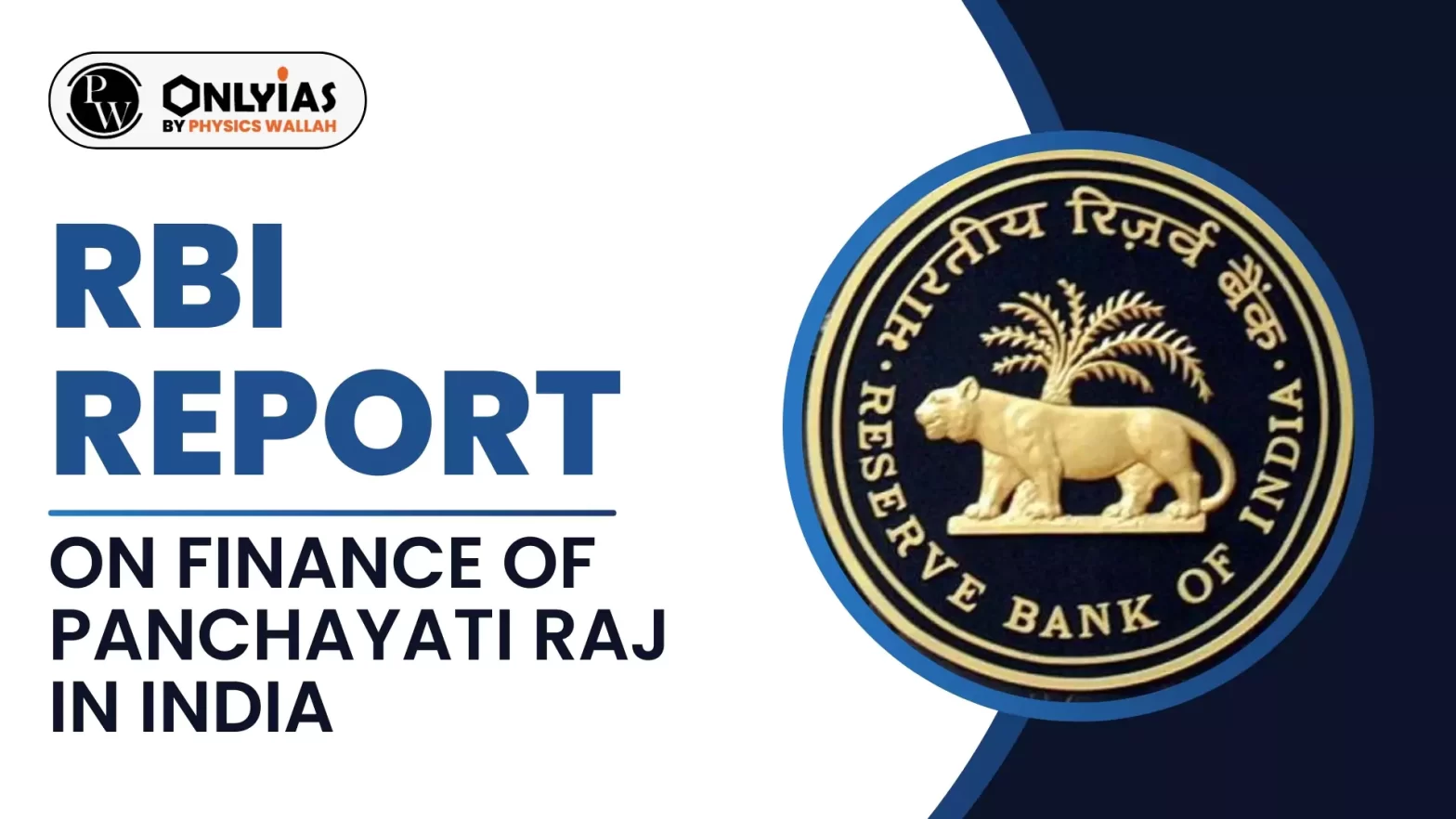![]() 31 Jan 2024
31 Jan 2024

This editorial is based on the news “Our Panchayati Raj in India is in need of funding empowerment” which was published in the Live Mint. Recently, the Reserve Bank of India (RBI) released its report titled “Finances of Panchayati Raj Institutions” for the years 2020-21 to 2022-23. It presents an assessment of their finances and their role in India’s socio-economic development.
| Relevancy for Prelims: Reserve Bank of India (RBI), Panchayati Raj In India, Central Finance Commissions (CFCs), Sansad Adarsh Gram Yojana (SAGY), and Panchayat Development Index.
Relevancy for Mains: RBI Report On Panchayati Raj Finance- Constitutional Provisions, Significance, Challenges and Way Forward. |
|---|
| Must Read | |
| NCERT Notes For UPSC | UPSC Daily Current Affairs |
| UPSC Blogs | UPSC Daily Editorials |
| Daily Current Affairs Quiz | Daily Main Answer Writing |
| UPSC Mains Previous Year Papers | UPSC Test Series 2024 |
<div class="new-fform">
</div>